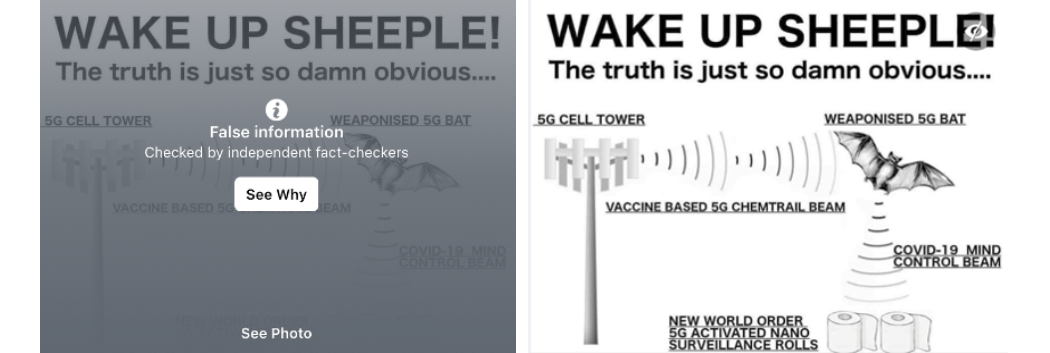Should brands boycott Facebook?
Making sense of #StopHateForProfit
Coke, Unilever and Starbucks have been joined by Microsoft, Levi’s, North Face and hundreds of other brands in an ad boycott on Facebook and Instagram. It’s in solidarity with the Black Lives Matter movement, protesting about the prevalence of hate speech on the platform. So, what’s actually happening, and should you join them?
Who is boycotting Facebook and why?
Stop Hate for Profit is a coalition of anti-racist, free-speech and other advocacy groups in the US. It has called for major companies to stop advertising on Facebook, Instagram and WhatsApp until the platform takes action to reduce and delegitimise the huge amount of hate-speech and racist content that some users upload. Obviously, Facebook claims it is doing all it can to stem the tide. Stop Hate for Profit disagree. And they have persuaded top-tier advertisers to pull ad-spend from Facebook’s properties in protest.
How big a deal is it?
In theory, Facebook is highly vulnerable to ad boycotts: 98% of its revenue comes from advertising. But there are some important limits to the scale of the current action:
- The campaign hasn’t gained significant traction in the UK and there isn’t huge consumer pressure on brands to join
- Most of the boycotts are just for the month of July
- Most of the 100 biggest ad spenders on the platform have not joined the boycott. Companies like Walmart, Uber, Netflix, Domino’s, American Express and AT&T continue to advertise as before
- Most of Facebook’s ad revenue comes from SME’s, not big brands and there’s no indication that this boycott is gaining traction among smaller firms
Should my brand join the boycott?
Ultimately, that’s a values question for your brand and not one we would address in general terms. What we can do is assess if this will become a reputational issue that could have a negative impact on your brand.
Given the limits to the boycott and the lack of active consumer pressure, our feeling is that this particular campaign may well peter out.
In the short term, your brand probably won’t suffer if you take no action.
That said, if principled ethical values are core to your brand position and relationship with customers, then you should consider reviewing budget allocation on Facebook channels and communicate with customers via other channels. Most brands, however, won’t be cast into the wilderness by consumers for continuing to advertise on the platform.
The long view: this isn’t over.
It’s tempting to compare this issue to YouTube’s brand safety boycott issues in 2017. In response, Google made relatively modest algorithm changes and increased moderation. This largely stopped ads appearing next to hateful content, so advertisers returned to the platform.
That won’t work for Facebook. Here, people are protesting about the content itself, not whether their ad appears next to it. That’s far harder to address. Legally, Facebook is more like a noticeboard owner than a newspaper. It is not responsible for what people post on the noticeboard as long as it takes down offensive notices in a timely fashion.
But the more actively Facebook moderates and polices the content people upload, the more like a publisher it looks, with all the legal obligations of publishers. Facebook really doesn’t want that responsibility.
Why not? Well, partly because one person’s free speech is another person’s hate speech, but also because the boundaries aren’t clear. Content moderation is a task fraught with issues, as illustrated by Facebook’s decision to flag the graphic below as ‘False information’. 5G activated nano-surveillance loo-rolls might be ‘obviously satirical’ to us, but we’ve seen weirder ‘serious’ posts. Somewhere, someone has to decide on a post-by-post basis what’s OK and what isn’t, hundreds of millions of times a day.

The problem of content moderation. How far should Facebook go?
With presidential elections looming in the US, don’t expect the issue to be resolved soon. In fact, expect little action this year, but lots furious debate about the company’s role in the coming polls.
Brands, be aware
Basically, brand safety and content moderation issues aren’t going away any time soon, however much Facebook wish they would. And while this particular boycott may only affect UK brands with strongly-held ethical stances, the issues it raises are built into the very fabric of social media. They’ll be back. So, it’s a good move for smart brand managers to keep a firm weather eye on consumer attitudes towards the social media giants and factor that into their comms planning.
To see some of our work, click here for case studies on how we’ve helped BUPA, Pets at home, Silentnight, Marriott, Brother, Wagamama and many more.
Alternatively, if you’d like to learn more, give us a call on 0161 831 0831 and ask for Nicola or get in touch at hello@dinosaur.co.uk.








